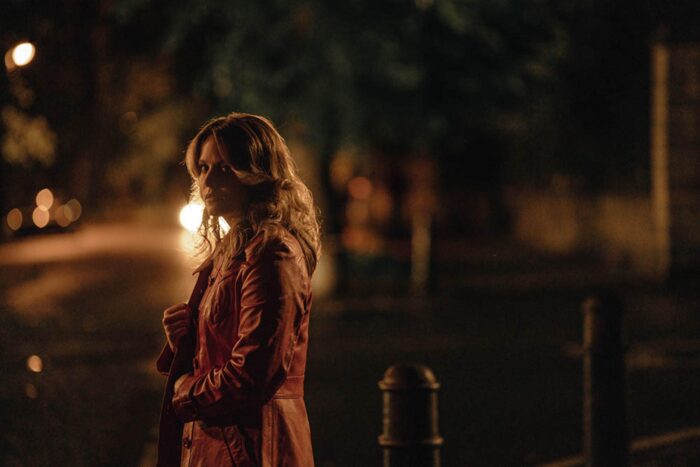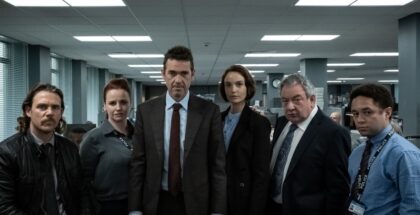True Crime Tuesdays: The Long Shadow
Review Overview
Performances
9Factual accuracy
9Portrait of systemic misogyny
6Helen Archer | On 10, Oct 2023
Peter Sutcliffe’s reign of terror, which cast the longest shadow over the women and children of Yorkshire from 1976 until his capture in 1981, has been widely disseminated in books, documentaries and TV programmes, some more powerful than others – Liza Williams’ 2019 three-part documentary being hard to surpass. This seven-part series, based on Michael Bilton’s 2003 book Wicked Beyond Belief, is directed by Lewis Arnold and written by both Bilton and George Kay. When much has been talked about forefronting the victims in the series, it is strange to see an all-male creative team at the helm.
The misogyny of the police force – and society as a whole – was one of the reasons it took so long to identify Sutcliffe as the ‘Yorkshire Ripper’ (a moniker hated by families of the victims), and, though the series attempts to address that, it does rather get lost in this re-telling. While The Long Shadow is depressingly compelling – the sense of time and place is palpable, with the opening shots telling of a cost of living crisis hitting the poorest communities the hardest – it is also rather muted as to the institutional nature of the sexism at play, even while spending time telling the stories of Sutcliffe’s victims, and dramatising some of the most insidiously victim-blaming police interviews.
Beginning with Wilma McCann (Gemma Laurie) tucking her children into bed for the night, and their panic at waking up and finding her gone (and bookending the series with an interview with McCann’s now-adult son Richard), the programme then tells the story of Emily Jackson (Katherine Kelly), who turned to sex work in order to support her family, becoming Sutcliffe’s second murder victim. From there, the women’s stories are weaved into the police investigation, as DCS Dennis Hoban (Toby Jones) is sidelined for a team set up under ACC George Oldfield (David Morrissey).
As the series progresses, it gives as much time to the police investigation as it does to the victims. Oldfield becomes increasingly obsessed with the tapes sent to him by hoax caller ‘Wearside Jack’, convinced that the murderer must have a Geordie accent, leading him to disregard any suspects without one. Sutcliffe was, it turned out, interviewed nine times over the course of the investigation, but thanks to issues with the filing system – and the sheer amount of information being called in – this wasn’t picked up on. One such interview – where police went to his house – is dramatised here. But, in fact, the police had a sketch of him from very early on, thanks to Marcella Claxton (Jasmine Lee-Jones), whose story is threaded throughout the seven episodes in the aftermath of her attack. Disbelieved by the police as a victim of Sutcliffe, she was abused by police and the system in myriad ways, a victim of both misogyny and racism – and the update at the closing credits is truly rage-inducing, yet simultaneously completely unsurprising.
The penultimate episode, led by Jill Halfpenny and Paul Brennen as the parents of Sutcliffe’s final victim, Jacqueline Hill, is incredibly moving. Their depiction of grief turns to anger for the final episode, where Doreen Hill is able to confront police chiefs in a televised programme, as they congratulated themselves on finally apprehending Sutcliffe. That anger – at the curfews, at the way that women were told to moderate their behaviour and stay indoors, all because of police ineptitude – was bubbling under the surface in the years Sutcliffe was active, but is shown in the series in very brief glimpses of the first Reclaim the Night marches. While The Long Shadow is a factually accurate and immersive portrayal of that period, it fails to fully demonstrate the even longer ripples of a patriarchy which guided British society – or to pose the question of how much has truly changed.
















